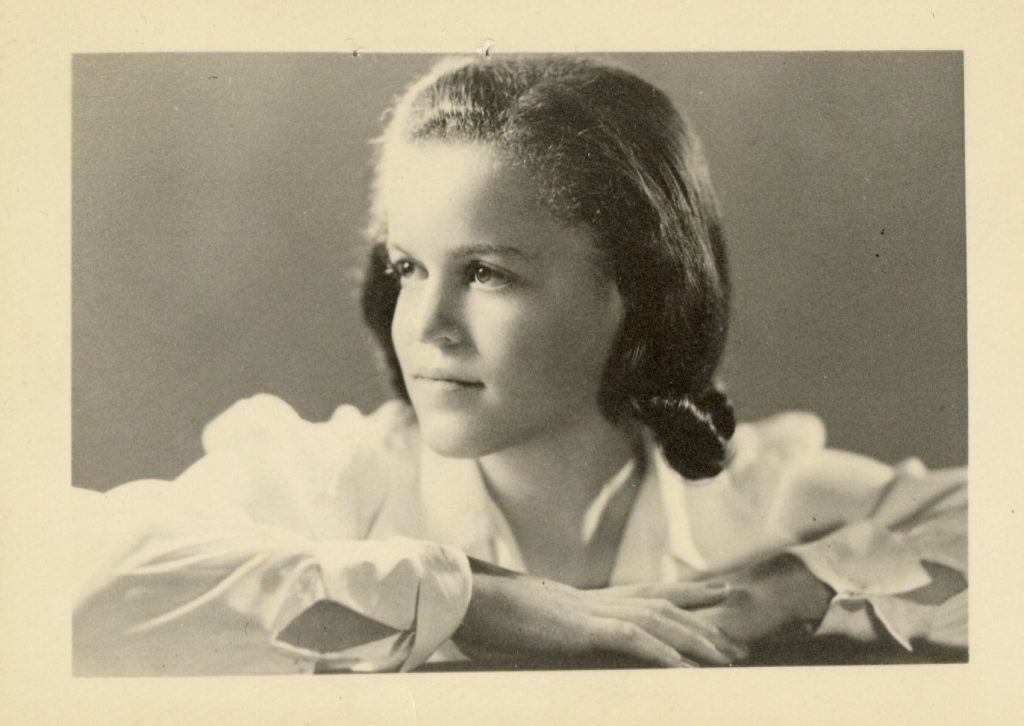King was from Dorchester, MA. At Mount Holyoke she was heavily involved in campus activities including the basketball team, hockey team, Fellowship of Faiths, treasurer of the Cosmopolitan Club, and a class officer. King was a psychology major and did honors work in psychology. She was elected Phi Beta Kappa her senior year and graduated cum laude.
After Mount Holyoke, King received an M.A. in psychology from Boston University. She taught at Bennett College and later worked for an aptitude testing organization in Boston and at a hospital.
Being Black, did you find hostilities and prejudices directed against you from the student, the faculty, or the staff?
“It’s hard to say “hostilities and prejudices” Actually, I was aware of no hostility. But prejudice was something different and much more subtle. I was more acutely conscious of sociological class and economic exclusiveness – being poorer than most and of less social standing. All were polite to me, some patronizing, most friendly on an equal and open basis. We did have a dean of residence who did not permit inter-racial rooming. I had a single room all four years, not always by choice.”
…It was found that you alone were the only Black graduating in the Class of ‘42. … how many Black women were attending Mt. Holyoke your senior year?
“When I was a freshman, the only other Negro was a senior. By my sophomore year there were two in the freshman class, thus shattering a long-standing unwritten quota among the seven sister colleges of “only two at a time on campus” when I was a senior, two more negroes were freshmen, bringing our total to five!”
Did you find that, in order to survive here, a Black woman had to be submissive and try to “blend in”?
“I was not aware of any need to be submissive in order to survive at Mount Holyoke as a “Black woman” actually, I was not even aware of being a “Black woman”; I was a “Negro student.” There is a difference. I survived at Mount Holyoke because I could “cut the mustard” in the classroom and so won the respect of fellow students and faculty…In addition I am fair-skinned, which has doubtless contributed to the weakness of my “Black identity” feelings. I readily identify with being a Negro, a member of the race. I haven’t got my head together on “being Black” which the younger generation tells me is a point of view as much as a state of being.”
Do you remember an incident, no matter how insufficient it may seem to you, whereby you or some other Black student was “reminded” that you were Black.
“I remember many incidents of being “reminded” of being Negro… I recall the outrage on campus when two members of ‘43 – one White and one Negro, were denied their request to room together. There was also the time when my religion professor suggested that perhaps I should cut his “Christianity and Social Problems.” class on the day when the topic for discussion was “race prejudice.” ”
If there are any other facts or circumstances you would like to add please do add them.
“I continue to be grateful for having had the opportunity for a Mount Holyoke education. It stacks up well in their world and makes me proud to be an alumna. I was pleased at the decision to remain a college for women and am confident that Black women in more substantial numbers now can continue to get an education there to be well prepared for our unique role in the world.” *
*1973 Interview with Regina Elston ‘76 for History 265 “Black and White Americans”
